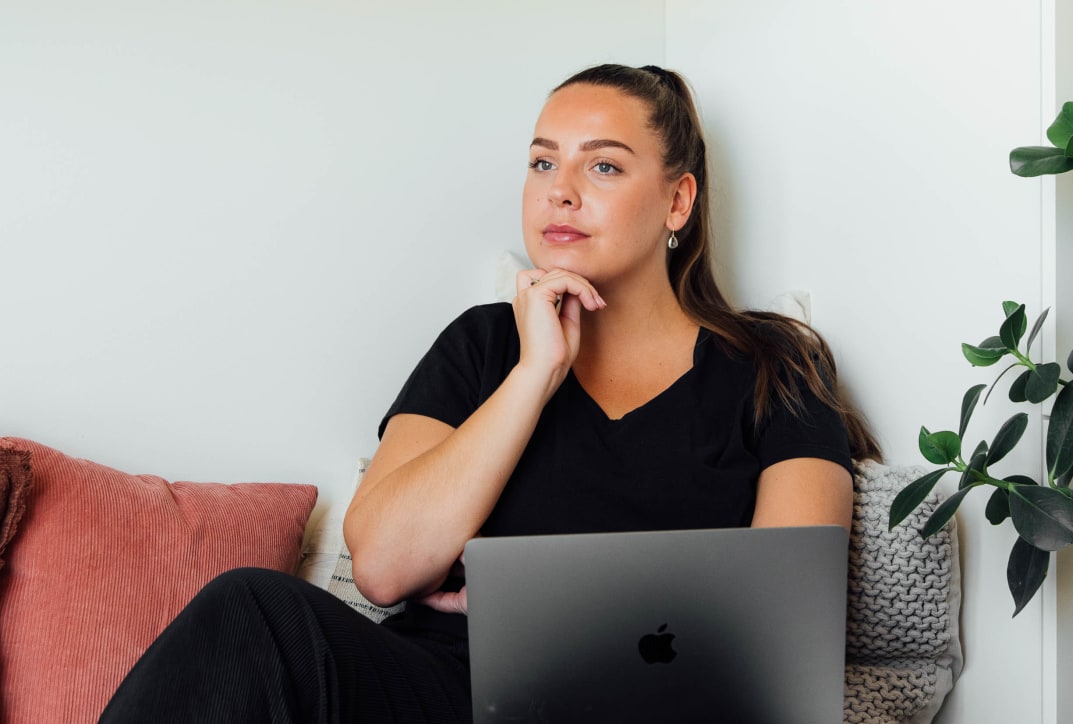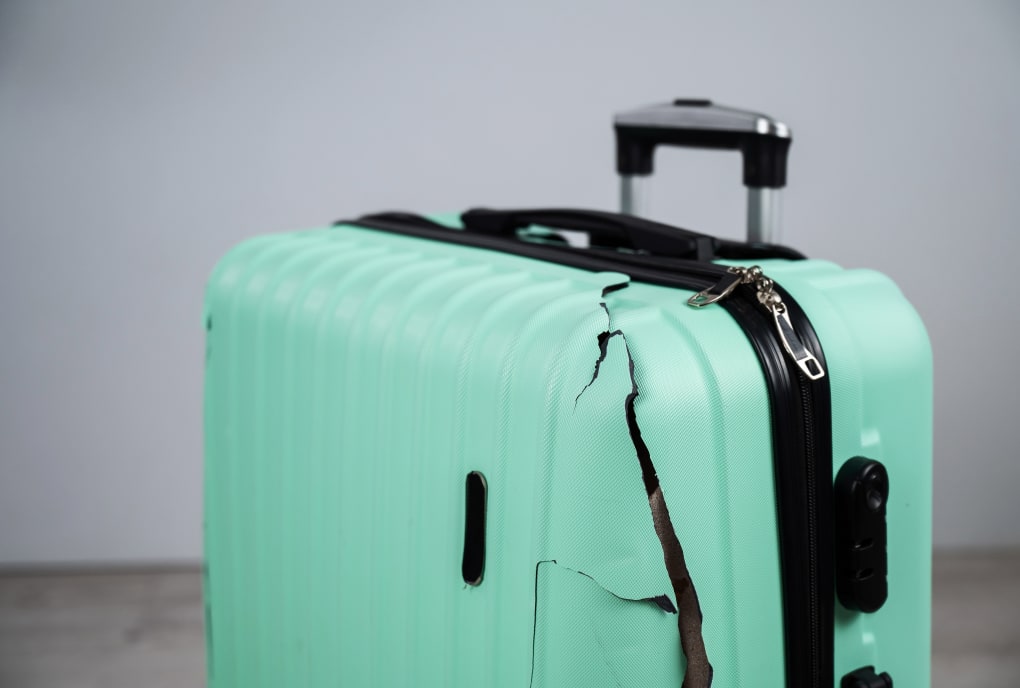
The student loan is a loan that allows you to study without working full-time alongside your studies. But do you need other loans as well? And what about insurance?
Student loans from Lånekassen
Every year you must apply for a student loan from Lånekassen. This loan is paid into your account as a fixed sum once a month (on the 15th of each month). Every August and January you will receive a larger payment, the so-called large grant.
The major scholarship, which is awarded every August and January, is intended to cover your extra expenses around the start of your studies: Textbooks, the semester fee and perhaps relocation expenses.
You can find out how much loan and grant you will receive at Lånekassen.no.
Other factors that may affect loans and grants
Do you have assets or own your own home? Or are you retraining or receiving your own social security benefits? These are things that can affect your student loan.
Studying is a good investment
When you finish your studies, part of your loan will be converted to a grant if the requirements for converting loans to grants are met.
The grant is a gift. You do not have to pay it back.
The loan you are left with, however, you must start repaying six months after you have finished your studies. Pay it back with pleasure. You have used your student loan to acquire knowledge and skills that no one can take away from you, and that will hopefully lead to interesting jobs in life. You have made a good investment.
The student loan is a favourable loan
As long as you are studying, the loan is both interest and installment-free, and when you start paying it off, the interest rate is lower than on other loans.
If you have a period of low income during the repayment period of your student loan, you can defer the bill 36 times - or a total of three years. Certain situations (such as unemployment) may also entitle you to interest cancellation.


Studying is a good investment, enjoy your studies and pay back your student loan with pleasure when the time comes!
Do you need more loans?
First of all: Do you need a loan? Yes, most people need loans for big things like education, housing and cars. Do you need any other loans? Preferably not.
Loans cost money. A lot of money.
It may seem very tempting to take out a loan to buy something nice or go on a vacation, but remember that the loan will cost you money for a long time to come, and you will pay back much more than you spent. This is especially true for consumer loans and credit card loans; these cards have a high interest rate, meaning that you have to pay back a certain percentage of the loan in addition to the loan itself.
It's much smarter to save for a while and then go on vacation than to just go on that vacation and pay for the fun for years afterwards.
💎 Insurance
Everyone SHOULD have insurance. Even, or perhaps especially, students! Even though it can feel a bit boring to pay a fixed sum that "you get nothing in return", you'll be happy the day something happens and you need your insurance. If something happens to you or your belongings, the insurance company will help you. If you don't have insurance, you could face a huge financial burden, which can be particularly difficult as a student. That's why it's important to insure yourself and your belongings.


If your suitcase is lost or damaged, you'll be glad you have travel insurance in place! Theft, accidents or unfortunate incidents happen every day and one day it can affect YOU financially if you don't have insurance.
Covered by parents' insurance?
Up to a certain age (often until you turn 21), your parents' insurance also applies to you. Therefore, check whether you are covered by your parents' home and travel insurance before you take out your own (if you are under 21).
Check different offers
If you do not currently have insurance or would like to have more insurance than you have, check out the insurance providers (banks and insurance companies) and look at the prices and what the insurance policies contain, and choose the one that suits you best. Most insurance providers have their own student packages or packages for young people.
If you are a member of a student organization or another organization you may be able to get good insurance through your membership or already be insured through them. Check this before you contact an insurance company!
👩🏽💻 The packages often include these insurances:
🏚 Home insurance:
Contents insurance covers your belongings inside your home. Most commonly, contents insurance covers water, fire and natural damage. Home insurance can cover different things, so you need to look at what the different insurance companies cover and choose the one that suits you best.
What do you get and what do you have to pay for yourself?
Before you enter into an agreement, it is important to find out what amount you will receive if something happens and how much deductible you will have to pay.
The deductible is the amount you have to pay yourself when you use your insurance. By charging their customers a deductible, the insurance company manages to keep the price of insurance at an acceptable level.
✈️ Travel insurance:
Simply put, travel insurance is an insurance policy that covers you while you're traveling. Some travel insurance policies cover you from the moment you walk out the door at home.
For example, travel insurance can help you if you get sick while traveling or your luggage is delayed or lost.
🔥 Accident insurance:
Covers you if you are seriously injured in an accident. The amount of compensation varies. Most insurance policies also include psychological first aid in the event of an acute psychological crisis due to a serious incident.
Frequently asked questions loans and insurance
Your income and assets have no impact on how much loan you can get, but if the amounts are higher than the limits, you will receive a smaller grant. It is a good idea to be aware of these limits so that you know how much you can earn without affecting your grant.
See Lånekassen.no for more information about how much you can earn or have in assets.
Lånekassen only grants support for one academic year at a time. You must therefore apply to Lånekassen for study support every year. If something happens during your studies, such as you leave before the exam or you want to change your education, you must notify Lånekassen.
The deadline for applying for loans and grants is November 15 for the fall semester and March 15 for the spring semester.
Yes, you need contents insurance 😉
You should provide a contents insurance when moving in to your own place, including student housing.
SSN as a lessor is responsible for keeping our buildings and our equipment insured, but you must ensure that you insure your personal assets, as these are not covered through SSN's insurance.
First of all: check if you are covered by your parents' insurance, before you take out your own contents insurance.
Why contents insurance?
Should unforeseen events such as a fire, water damage, burglary of your home or shed occur, this can lead to expenses and losses for you as a resident. You can use the contents insurance to limit your own financial loss in such cases. If you do not have contents insurance, you will have to pay for such extra expenses yourself. It can be expenses for temporary residence if your home becomes uninhabitable, or expenses for clothes, books, bicycles, PCs, etc. that you need on a daily basis.
Whether you live in student housing or rent or own a home, you should have homeowners insurance. Fire, theft, bed bugs or water damage can be costly, and if you have home insurance, it will cover anything you lose in the accident (such as computers, clothes, furniture and appliances, books, bicycles, etc.).
Most banks and insurance companies have good deals for students up to a certain age (often 34). Check around to find the best deal for you. You should expect to pay NOK 100-200 per month.
Travel insurance is not only necessary and good to have when you are stranded on holiday abroad without luggage or can't get home, but is just as important in everyday life. Travel insurance is valid from the moment you walk out the door. If you are the victim of theft on the bus on the way to school, your travel insurance will cover the PC that was in your bag.
Exactly what your travel insurance covers will depend on who you have taken out insurance with - but the rule is that you SHOULD have travel insurance!
The deductible is the amount you have to pay yourself when you use your insurance. By charging their customers a deductible, the insurance company manages to keep the price of insurance at an acceptable level.
Get free financial advice
Do you need help setting up a budget, are you wondering about saving or do you need advice on how to make everyday life a little easier financially?

